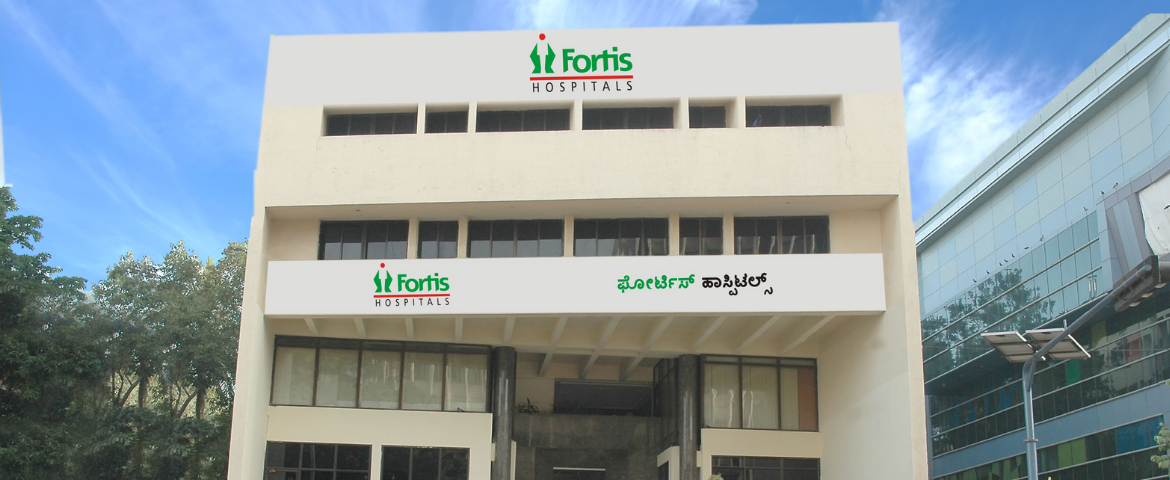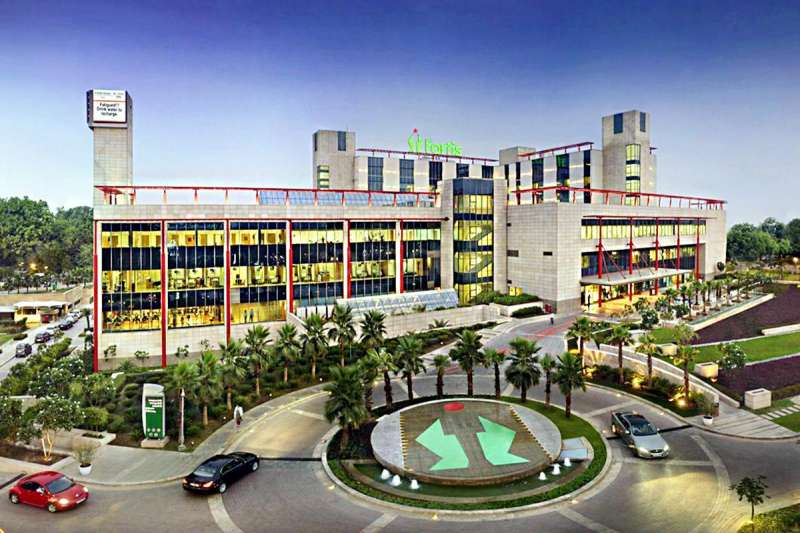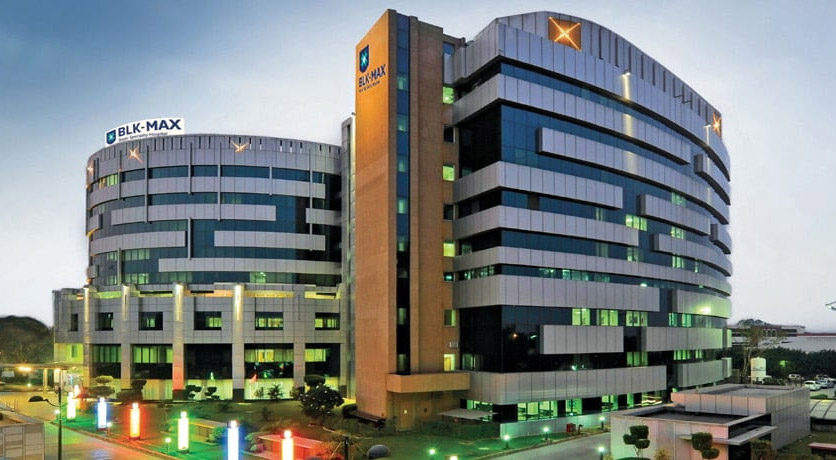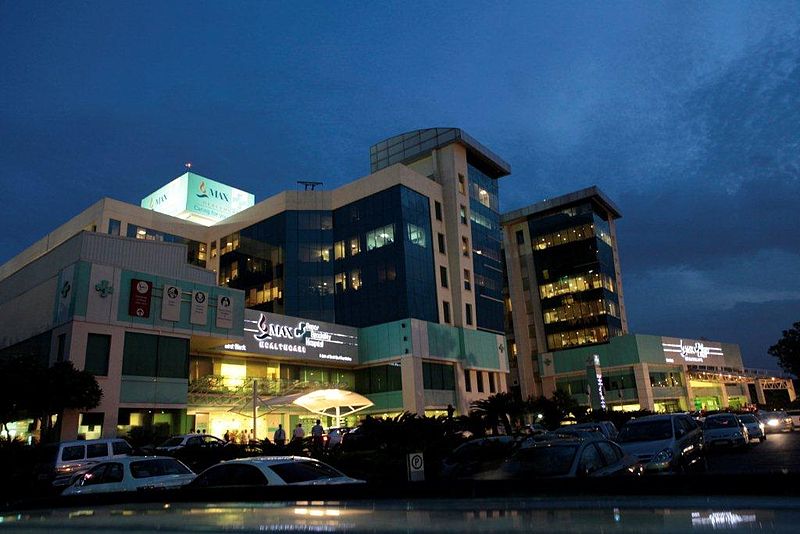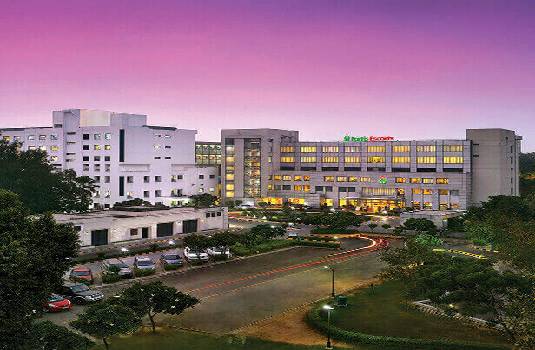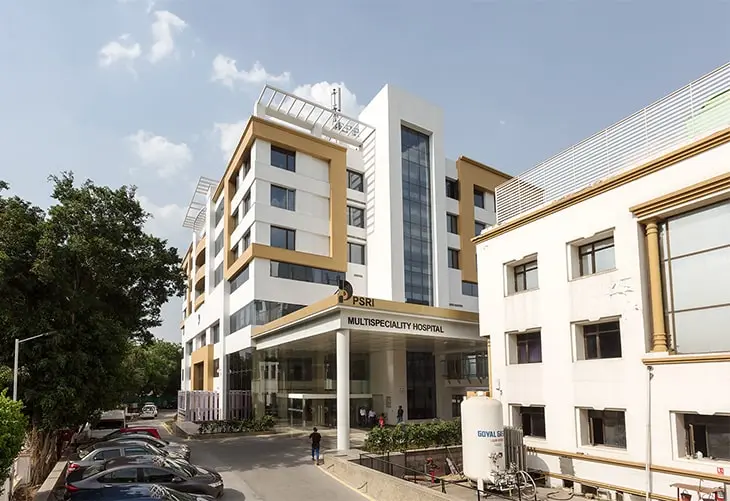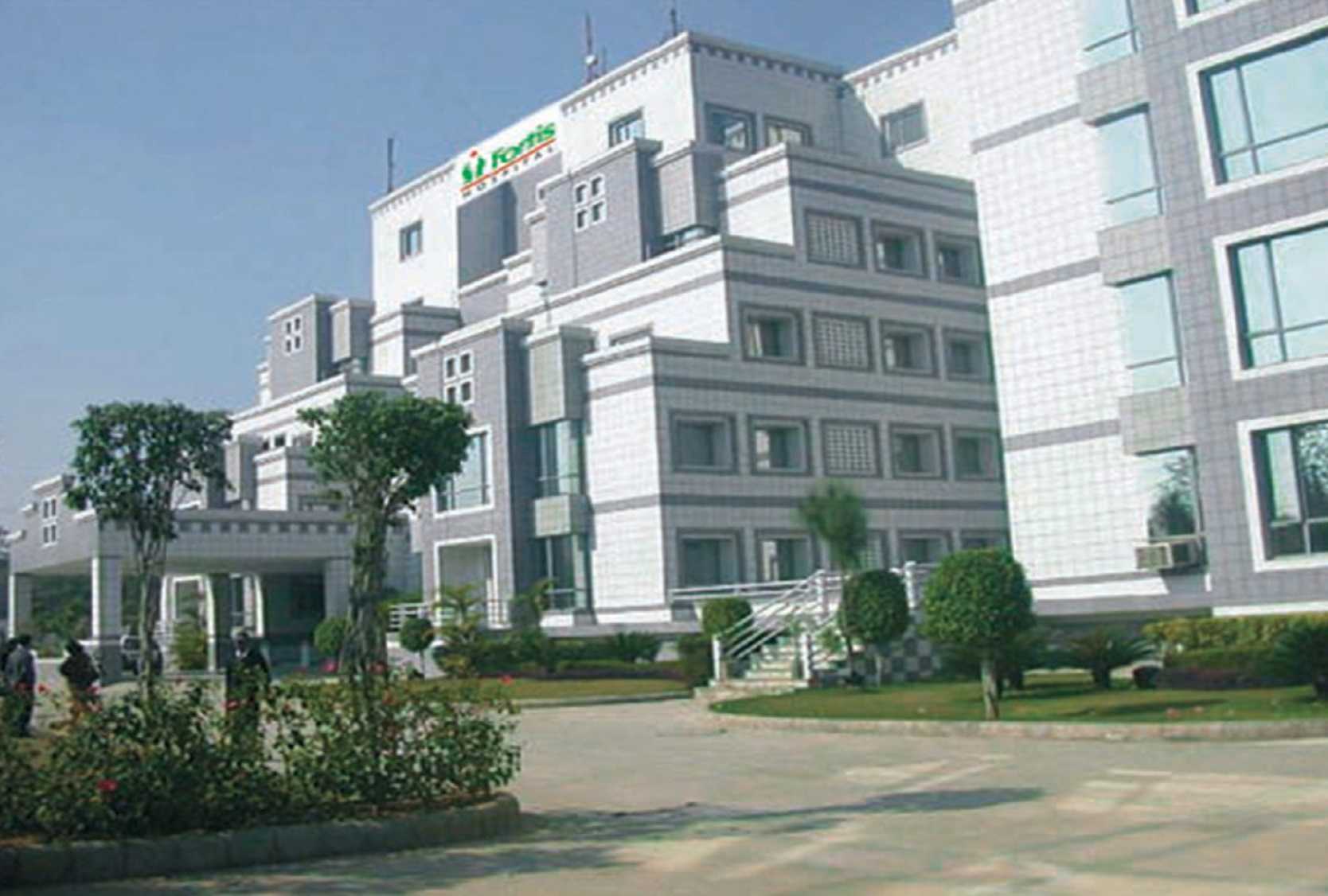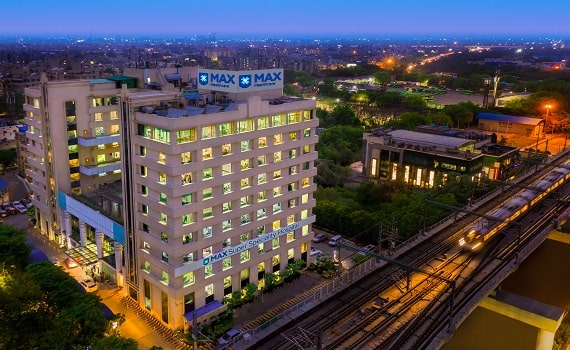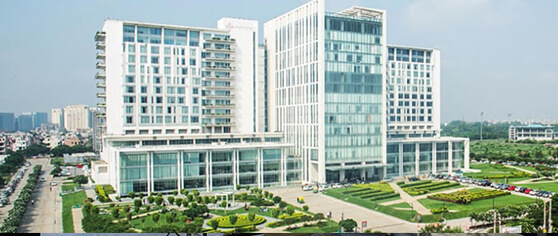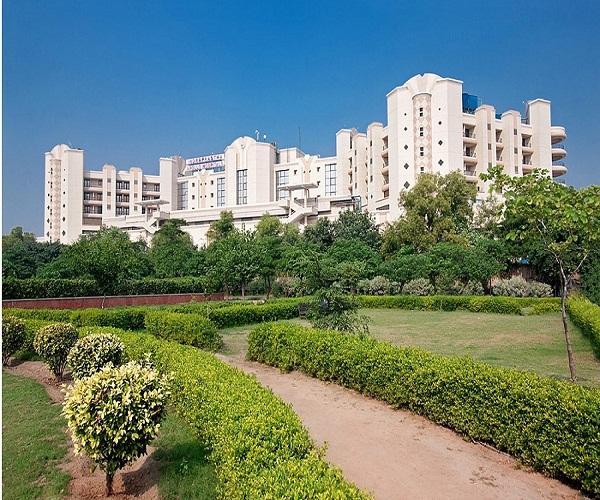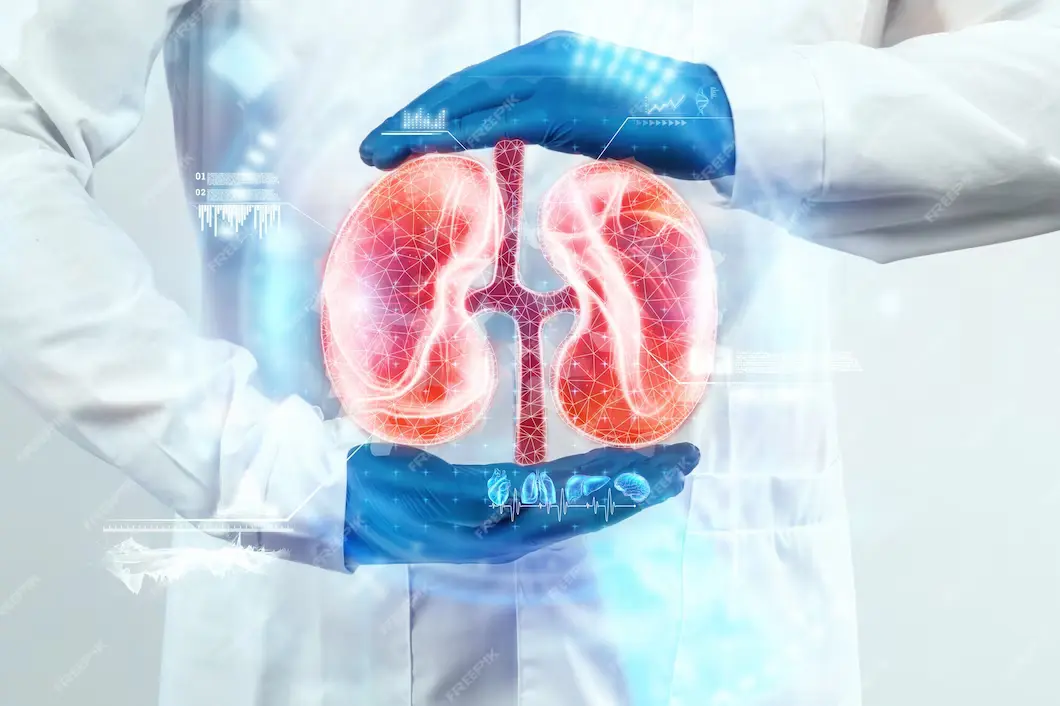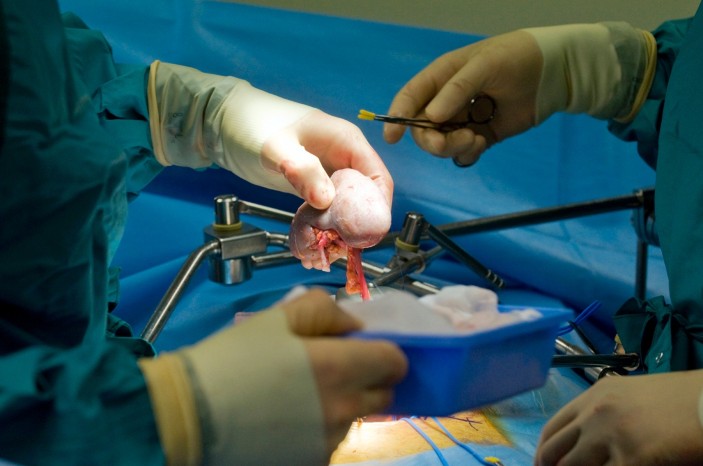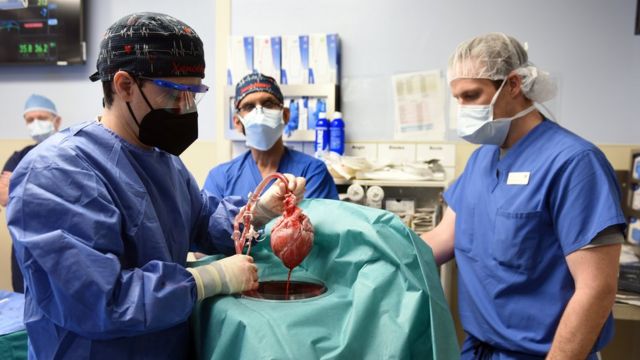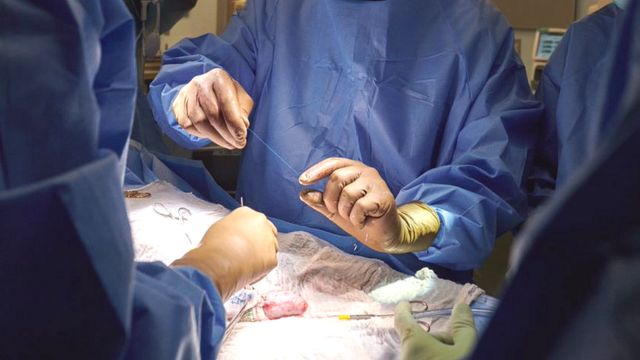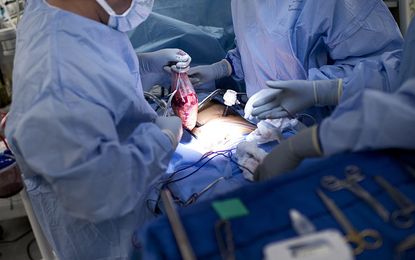Kidney Transplant cost in India
The cost of Kidney Transplant in India ranges from USD 11400 to USD 19000
Kidney Transplant:
A kidney transplant, also known as a renal transplant, is when a patient with end-stage kidney disease receives an organ transplant of a kidney. Depending on the source of the donor organ, kidney transplantation is usually classed as deceased-donor or living-donor transplantation.
Disease Overview:
Kidney failure
Kidney failure occurs when the kidneys are unable to filter metabolic waste products from the blood sufficiently.
Kidney failure can be caused by a variety of factors. Some cause a fast deterioration in kidney function (acute kidney injury, also called acute renal failure). Others cause kidney function to deteriorate over time (chronic kidney disease, also called chronic renal failure). The kidneys are less able to control the amount and distribution of water in the body (fluid balance), as well as the levels of electrolytes (sodium, potassium, calcium, phosphate) and acid in the blood, due to their inability to filter metabolic waste products (such as creatinine and urea nitrogen) from the blood.
Blood pressure frequently rises when renal failure has been present for a long period. A low red blood cell count occurs when the kidneys lose their capacity to generate enough erythropoietin, a hormone that encourages the creation of new red blood cells (anemia). The kidneys also lose their capacity to generate enough calcitriol (vitamin D's active form), which is essential for bone health. Kidney failure has an impact on bone development in youngsters. Kidney failure can cause weaker, deformed bones in both children and adults.
Although kidney function can diminish at any age, older persons are more likely than younger people to suffer from acute renal injury or chronic kidney disease.
Many conditions that cause renal function decrease can be treated, and kidney function can sometimes be restored. Kidney failure has been turned from a deadly condition to one that can be managed because to the availability of dialysis and kidney transplantation.
Disease Signs and Symptoms
Acute renal failure can cause the following signs and symptoms:
- Urine production is reduced, however it might occasionally return to normal.
- Swelling in your legs, ankles, or feet is caused by fluid retention.
- Breathing problems
- Fatigue
- Confusion
- Nausea
- Weakness
- Irregular heartbeat is a condition in which the heartbeat is irregular.
- Pain or pressure in the chest
- In extreme circumstances, seizures or coma may occur.
- Acute renal failure can sometimes go unnoticed and only be identified through lab testing performed for another reason.
Disease Causes:
Acute renal failure can develop when one or more of the following conditions exist:
- You have a disorder that causes your kidneys' blood flow to slow down.
- Your kidneys are damaged in a direct way.
- The urine drainage tubes (ureters) in your kidneys become clogged, preventing wastes from leaving your body through urine.
- Kidney blood flow is obstructed.
The following diseases and disorders can cause kidney damage by slowing blood flow to the kidneys:
- Loss of blood or fluid
- Medication for high blood pressure
- Angina pectoris
- Coronary artery disease
- Infection
- Failure of the liver
- Aspirin, ibuprofen (Advil, Motrin IB, and others), naproxen sodium (Aleve, and others), and other pain relievers
- A severe allergic response has occurred (anaphylaxis)
- Burns that are severe
- Dehydration is a serious problem.
- Kidney damage is common.
Acute renal failure can be caused by the following illnesses, conditions, and agents:
- Blood clots in and around the kidneys' veins and arteries
- Cholesterol deposits in the kidneys that obstruct blood flow
- Glomerulonephritis is an inflammation of the small filters in the kidneys (gloe-mer-u-loe-nuh-FRY-tis) (glomeruli)
- Hemolytic uremic syndrome is a disorder that occurs when red blood cells are destroyed prematurely.
- Infection, such as that caused by the coronavirus virus in 2019. (COVID-19)
- Lupus is an autoimmune disease that causes glomerulonephritis.
- Medications utilised during imaging examinations, such as some chemotherapeutic medications, antibiotics, and colours
- Scleroderma is a term used to describe a group of uncommon illnesses that affect the skin and connective tissues.
- A uncommon blood condition called thrombotic thrombocytopenic purpura
- Toxins such as alcohol, heavy metals, and cocaine are examples of toxins.
- Rhabdomyolysis is the breakdown of muscle tissue that results in kidney injury due to toxins produced by the loss of muscle tissue.
- Tumor lysis syndrome occurs when tumour cells break down, releasing poisons that can harm the kidneys.
- Blockage of urine in the kidneys
Urinary blockages are diseases and disorders that prevent urine from leaving the body and can cause acute kidney damage.
- Bladder cancer is a kind of cancer that affects the bladder
- Urine clots are blood clots that form in the urinary system.
- Cervical cancer is a kind of cancer that affects the female
- Colon cancer
- Prostate enlargement
- Stones in the kidneys
- Nerve injury affecting the bladder's control nerves
- Prostate cancer is a kind of cancer that affects men
Factors that are at risk
Acute renal failure is nearly always the result of another medical disease or incident. Acute renal failure can be caused by a number of factors, including:
- senior citizen
- Blockages in your arms or legs' blood vessels (peripheral artery disease)
- Diabetes
- Blood pressure that is too high
- Insufficiency of the heart
- Diseases of the kidneys
- Diseases of the liver
- Some malignancies, as well as their therapies
- a senior citizen
Disease Diagnosis:
Your doctor may prescribe specific tests and treatments to confirm your diagnosis if your signs and symptoms suggest you have acute renal failure. These may include the following:
- Measuring the flow of urine Measuring how much urine you produce in a 24-hour period might help your doctor figure out what's causing your kidney failure.
- Urine tests are performed. Urinalysis (the analysis of a sample of your urine) can uncover abnormalities that indicate renal failure.
- Tests on the blood. A blood sample may indicate rapidly rising urea and creatinine levels, two chemicals used to assess kidney function.
- Imaging tests are performed. Your doctor may use imaging tests such as ultrasound and computed tomography to see your kidneys.
- A sample of kidney tissue is removed for examination.
Your doctor may prescribe a kidney biopsy to remove a tiny sample of kidney tissue for laboratory examination in some cases. To extract the sample, your doctor inserts a needle through your skin and into your kidney.
Disease treatment:
A hospital stay is usually required for acute renal failure treatment. The majority of persons with acute renal failure have previously been admitted to a hospital. The length of your hospital stay is determined by the cause of your acute renal failure and how fast your kidneys recover.
You might be able to heal at home in some circumstances.
The underlying cause of your kidney damage must be addressed.
The first step in treating acute renal failure is to figure out what caused your kidneys to be damaged in the first place. Your treatment options will be determined by the cause of your renal failure.
Complications will be treated until your kidneys have recovered.
In addition, your doctor will attempt to avoid problems and give your kidneys time to recuperate. Complications can be avoided with the following treatments:
Treatments can help you maintain a healthy fluid balance in your blood. Your doctor may suggest intravenous (IV) fluids if your acute kidney failure is caused by a shortage of fluids in your blood. Acute renal failure might also cause you to retain too much fluid, resulting in arm and leg edoema. In certain situations, your doctor may prescribe diuretics, which cause your body to remove excess fluids.
Medications to regulate potassium levels in the blood. To avoid the buildup of excessive amounts of potassium in your blood, your doctor may give calcium, glucose, or sodium polystyrene sulfonate (Kionex) if your kidneys aren't filtering potassium from your blood adequately. Potassium deficiency can lead to serious abnormal heartbeats (arrhythmias) and muscular weakness.
Medications that help to restore calcium levels in the blood. If your calcium levels in your blood go too low, your doctor may suggest a calcium infusion.
Toxins are removed from your blood by dialysis. If toxins build up in your blood, you may require temporary hemodialysis (also known as dialysis) to help eliminate them from your body while your kidneys heal. Dialysis may also assist in the removal of excessive potassium from the body. During dialysis, a machine pumps blood out of your body and filters it through an artificial kidney (dialyzer). After that, the blood is returned to your body.
Home cures and a healthy lifestyle
Your doctor may prescribe a particular diet to assist maintain your kidneys and reduce the work they have to do throughout your recovery from acute renal failure. Your doctor may send you to a dietician who will assess your current diet and provide recommendations to make it easier on your kidneys.
Your dietitian may advise you to: Choose reduced potassium foods, depending on your circumstances. Your nutritionist may advise you to eat meals with less potassium. Bananas, oranges, potatoes, spinach, and tomatoes are all high in potassium. Apples, cauliflower, peppers, grapes, and strawberries are examples of low-potassium foods.
Avoid goods that have been salted. Avoid goods with added salt, which include many convenience meals like frozen dinners, canned soups, and fast food, to reduce the amount of sodium you consume each day. Salty snacks, canned veggies, and processed meats and cheeses are some of the other items with added salt.
Phosphorus should be limited. Phosphorus is a mineral found in whole-grain bread, oats, bran cereals, dark-colored colas, almonds, and peanut butter, among other foods. A high phosphorus level in the blood can weaken your bones and cause skin irritation. Your dietician can provide you precise phosphorus guidelines and how to reduce it in your case.
You may not need to consume a particular diet while your kidneys recover, but good eating is always vital.
Country wise cost comparison for Kidney Transplant:
| Country | Cost |
|---|---|
| India | $13950 |
| Turkey | $20088 |
| United Arab Emirates | $53200 |
| Egypt | $19423 |
| Canada | $29298 |
Treatment and Cost
40
Total Days
In Country
- 10 Day in Hospital
- 2 No. Travelers
- 30 Days Outside Hospital
Treatment cost starts from
$15500
Popular Hospital & Clinic
Featured Hospital
9 Hospitals
Types of Kidney Transplant in Fortis Memorial Research Institute and its associated cost
| Treatment Option | Approximate Cost Range (USD) |
|---|---|
| Kidney Transplant | 16,500.00 - 19,500.00 |
- Address: Sector - 44, Opp. HUDA City Center,Gurgaon, Haryana - 122002, India
- Facilities related to Fortis Memorial Research Institute: Private Rooms, Translator, Nursery / Nanny Services, Airport Pick up, Personal Assistance / Concierge, Free Wifi, Local Tourism Options, International Cuisine, Phone in Room, Private Driver / Limousine Services, Post operative followup, Mobility Accessible Rooms, Online Doctor Consultation, Air Ambulance, Religious Facilities, Rehabilitation, Cafe, TV in room, Car Hire, Health Insurance Coordination,
50
DOCTORS IN 35 SPECIALITIES
20+
FACILITIES & AMENITIES
Types of Kidney Transplant in BLK-Max Super Speciality Hospital and its associated cost
| Treatment Option | Approximate Cost Range (USD) |
|---|---|
| Kidney Transplant | 16,300.00 - 18,500.00 |
- Address: Pusa Road, New Delhi-110005
- Facilities related to BLK-Max Super Speciality Hospital: Private Rooms, Translator, Nursery / Nanny Services, Personal Assistance / Concierge, Free Wifi, International Cuisine, Phone in Room, Private Driver / Limousine Services, Post operative follow-up, Mobility Accessible Rooms, Rehabilitation, Cafe, TV in room, Car Hire, Health Insurance Coordination
17
DOCTORS IN 33 SPECIALITIES
20+
FACILITIES & AMENITIES
Types of Kidney Transplant in Max Super Speciality Hospital and its associated cost
| Treatment Option | Approximate Cost Range (USD) |
|---|---|
| Kidney Transplant | 16,400.00 - 18,700.00 |
- Address: Max Super Speciality Hospital No. 1, 2, Press Enclave Road, Mandir Marg, Saket Institutional Area, Saket, New Delhi, Delhi, 110017, India
- Facilities related to Max Super Speciality Hospital:
53
DOCTORS IN 34 SPECIALITIES
20+
FACILITIES & AMENITIES
Types of Kidney Transplant in Fortis Escorts Heart Institute and its associated cost
| Treatment Option | Approximate Cost Range (USD) |
|---|---|
| No Treatment option added | |
- Address: Okhla Road,New Delhi - 110 025 (INDIA)
- Facilities related to Fortis Escorts Heart Institute: Private Rooms, Translator, Nursery / Nanny Services, Personal Assistance / Concierge, Free Wifi, International Cuisine, Phone in Room, Private Driver / Limousine Services, Post operative follow-up, Mobility Accessible Rooms, Rehabilitation, Cafe, TV in room, Car Hire, Health Insurance Coordination
19
DOCTORS IN 33 SPECIALITIES
20+
FACILITIES & AMENITIES
Types of Kidney Transplant in PSRI Hospital and its associated cost
| Treatment Option | Approximate Cost Range (USD) |
|---|---|
| No Treatment option added | |
- Address: Press Enclave Marg, J Pocket, Phase II, Sheikh Sarai, New Delhi, Delhi 110017
- Facilities related to PSRI Hospital: Private Rooms, Translator, Nursery / Nanny Services, Personal Assistance / Concierge, Free Wifi, International Cuisine, Phone in Room, Private Driver / Limousine Services, Post operative follow-up, Mobility Accessible Rooms, Rehabilitation, Cafe, TV in room, Car Hire, Health Insurance Coordination
8
DOCTORS IN 33 SPECIALITIES
20+
FACILITIES & AMENITIES
Types of Kidney Transplant in Fortis Flt. Lt. Rajan Dhall Hospital, Vasant Kunj, Delhi and its associated cost
| Treatment Option | Approximate Cost Range (USD) |
|---|---|
| No Treatment option added | |
- Address: Fortis Flt. Lt. Rajan Dhall Hospital, Aruna Asaf Ali Marg, Pocket 1, Sector B, Vasant Kunj, New Delhi, Delhi 110070
- Facilities related to Fortis Flt. Lt. Rajan Dhall Hospital, Vasant Kunj, Delhi: Private Rooms, Translator, Nursery / Nanny Services, Personal Assistance / Concierge, Free Wifi, International Cuisine, Phone in Room, Private Driver / Limousine Services, Post operative follow-up, Mobility Accessible Rooms, Rehabilitation, Cafe, TV in room, Car Hire, Health Insurance Coordination
46
DOCTORS IN 34 SPECIALITIES
20+
FACILITIES & AMENITIES
Types of Kidney Transplant in MAX Super Speciality hospital, Patpadganj Delhi and its associated cost
| Treatment Option | Approximate Cost Range (USD) |
|---|---|
| No Treatment option added | |
- Address: 108A, Indraprasth Extension, Patpadganj, New Delhi- 110092, India
- Facilities related to MAX Super Speciality hospital, Patpadganj Delhi: Private Rooms, Translator, Nursery / Nanny Services, Personal Assistance / Concierge, Free Wifi, International Cuisine, Phone in Room, Private Driver / Limousine Services, Post operative follow-up, Mobility Accessible Rooms, Rehabilitation, Cafe, TV in room, Car Hire, Health Insurance Coordination
52
DOCTORS IN 33 SPECIALITIES
20+
FACILITIES & AMENITIES
Types of Kidney Transplant in Medanta-The Medicity, Gurgaon and its associated cost
| Treatment Option | Approximate Cost Range (USD) |
|---|---|
| Kidney Transplant | 16,800.00 - 18,900.00 |
- Address: CH Baktawar Singh Road, Sector 38, Gurugram, Haryana 122001
- Facilities related to Medanta-The Medicity, Gurgaon: TV in room Private rooms, Free Wifi, Phone in Room, Mobility accessible rooms, Family accommodation, Laundry, Welcome Safe in the room, Nursery / Nanny services. Dry cleaning, Personal assistance / Concierge Religious facilities, Fitness Spa and wellness Café, Business Centre, Shop, Dedicated smoking areas, Beauty Salon, Special offer for group stays, Parking available, Health insurance coordination, Medical travel insurance, Foreign currency exchange, ATM, Credit Card, Debit Card, Net banking, Diet on Request, Restaurant, International Cuisine, Treatment Related Medical records transfer, Online doctor consultation, Rehabilitation, Pharmacy, Document legalization, Post operative follow-up, Language Interpreter, Translation services, Transportation, Airport pickup, Local tourism options, Local transportation booking, Visa / Travel office, Car Hire, Private driver / Limousine services, Air ambulance
52
DOCTORS IN 33 SPECIALITIES
20+
FACILITIES & AMENITIES
Types of Kidney Transplant in Indraprastha Apollo Hospitals, New Delhi and its associated cost
| Treatment Option | Approximate Cost Range (USD) |
|---|---|
| No Treatment option added | |
- Address: Mathura Rd, Jasola Vihar, New Delhi, Delhi 110076
- Facilities related to Indraprastha Apollo Hospitals, New Delhi: Private Rooms, Translator, Nursery / Nanny Services, Personal Assistance / Concierge, Free Wifi, International Cuisine, Phone in Room, Private Driver / Limousine Services, Post operative follow-up, Mobility Accessible Rooms, Rehabilitation, Cafe, TV in room, Car Hire, Health Insurance Coordination
37
DOCTORS IN 33 SPECIALITIES
20+
FACILITIES & AMENITIES
Related Packages
More Related Information
Some of the top rated doctors are:
- Italy
Some of the top rated hospitals are:
- India
- Fortis Memorial Research Institute
- BLK-Max Super Speciality Hospital
- Medanta-The Medicity, Gurgaon
- Indraprastha Apollo Hospitals, New Delhi
- Turkey
- Kolan International Hospital, Sisli
- Istinye University Bahcesehir Liv Hospital
- Istinye University Medical Park Gaziosmanpasa Hospital
- I.A.U VM Medical Park Florya Hospital
- Altinbas University Medical Park Bahcelievler Hospital
- Medical Park Antalya Hospital
- Medical Park Tarsus Hospital, Mersin
- Thailand
- Bangpakok 9 International Hospital
- Bumrungrad International Hospital
- Bangkok Hospital
- Bangkok International Hospital
- Samitivej Hospital
- BNH Hospital
- Aek Udon International Hospital
- Phuket International Hospital
- Bangkok Christian Hospital
- Thonburi Hospital
- Kasemrad Hospital Sriburin
- United Arab Emirates
- Burjeel Hospital, Abu Dhabi
- New Hope IVF Gynaecology & Fertility Hospital, Sharjah
- Iranian Hospital, Dubai
- Kings College Hospital Dubai
- Zulekha Hospital Sharjah
- Burjeel Hospital for Advanced Surgery Dubai
- Burjeel Medical City, Abu Dhabi
- NMC Royal Hospital, Khalifa City, Abu Dhabi
- NMC Royal Hospital Sharjah
- AL NOOR HOSPITAL, Abu Dhabi
- Al Zahra hospital, Dubai
- NMC Specialty Hospital, Al Nahda, Dubai
- Egypt
- Cleopatra Hospital
- As-Salam International Hospital, Cairo
- Nile Hospital, Hurghada
- Andalusia Group For Healthcare, Maadi
- Saudi German Hospital, Cairo
- Elite Hospital, Alexandria
- Ganzouri specialized hospital
- Al Shrouk Hospital, Cairo
- Nile Badrawy Hospitals, Cairo
- Dar Al Fouad Hospital's (DAFH)
- Canada
- Toronto General Hospital
- Jewish General Hospital
- Montreal General Hospital (McGill University Health Centre)
- Royal Jubilee Hospital (RJH)
- The Royal Victoria Hospital (McGill University Health Centre)
- Centre hospitalier de l’Université de Montréal (CHUM)
- Victoria General Hospital
- St Michaels Hospital Toronto
- Hamilton General Hospital
- MCMASTER UNIVERSITY MEDICAL CENTRE
- University of Ottawa Heart Institute
- Jordan
- King Abdullah University Hospital
- Istishari Hospital
- Al Khalidi Hospital & Medical Center
- Al Essra Hospital
- The Specialty Hospital
- Islamic Hospital
- Jordan Hospital
- Abdulhadi Hospital
- Queen Alia Heart Institute
- King Hussein Hospital
- Istiklal Hospital
- United Kingdom
- Cancer Centre London
- The Highgate Hospital
- The Holly Hospital
- The Parkside Hospital
- Circle Reading Hospital
- Shirley Oaks Hospital
- St Edmunds Hospital
- The London Clinic
- Woodlands Hospital
- The Christie NHS Foundation Trust
- Royal Marsden Hospital
- Queen Elizabeth Hospital Birmingham
- London Bridge Hospital, HCA Healthcare
- Saudi Arabia
- Italy
Frequently Asked Questions
The type of transplant (living or deceased donor), with living donor transplants often being more expensive, affects the cost of kidney transplant operation in India. The total cost also includes the surgeon's fee, which varies depending on experience, and donor charges, which pay for the donor's medical care. The overall cost of therapy is also influenced by hospital fees, the patient's location, the length of their stay, and the cost of their post-treatment medications and rehabilitation.
International patients can receive kidney transplants from over 50 hospitals in India. The following hospitals are among the top ones:
1- Fortis Flt. Lt. Rajan Dhall Hospital, Delhi
2- Apollo Hospitals Bannerghatta
3- Fortis Hospital, Bangalore
4- Sri Ramachandra Medical Centre, Chennai
5- Ruby Hall Clinic, Pune
In India, the price of a kidney transplant might vary from $14,000 to $18,000, or more in certain circumstances. The costs associated with the procedure, hospital stay, immunosuppression, physician fees, anesthesia, blood testing, prescription drugs, and follow-up appointments are usually included in this estimate.
The patient is expected to stay for an additional forty-five days following surgery. It is advised that patients stay for this length of time in order to finish all required follow-ups and control tests and make sure the surgery went well.
The nation is well-known for its cadre of highly qualified and experienced surgeons who are esteemed for their clinical acumen and keen vision. The following are a few of the internationally recognized physicians in India who perform kidney transplants:
1- Dr. Saurabh Pokhriyal, Manipal Hospital
2- Dr. Mohammed A Rafey, Apollo Hospital
3- Dr. Ajit Huligol, Columbia Asia Hospital
4- Dr. Lakshmi Kant Tripathi, Artemis Hospital
5- Dr. Mohan Keshavamurthy, Fortis Hospital
Global kidney transplant success rates are highest in India. Currently, 90% of cases are successful. The overall success rate of a kidney transplant depends on a number of factors, including the experience of the surgical and post-operative care teams, the hospital of choice, the compatibility of the donor, tissue matching, and the donor's blood relationship, among many others. Selecting a hospital with the highest hygiene standards is crucial to ensure you don't develop any infections after surgery, as these illnesses pose a significant danger and could lower the success rate.
Depending on where the kidney is accessible, India offers two different kinds of kidney transplants.
Deceased-Donor Transplant: The majority of deceased donors' organs originate from individuals who signed an organ donor card prior to passing away and made the decision to donate their kidney. Additionally, the deceased's relatives may have given permission to donate at the time of the person's passing. A deceased donor's kidney is removed during a kidney transplant, and the kidney is then surgically placed into the body of the recipient, whose kidneys are failing.
In India, a deceased donor transplant costs $11,000 USD.
Living-Donor Transplant: A living donor transplant involves surgically grafting a healthy donor kidney into a patient who is suffering from renal failure. Typically, the living donor is a family member—a brother, sister, parent, or kid, for example. The live donor could be a partner, cousin, aunt, uncle, or even a cousin. Compared to kidney transplants from deceased donors, kidney transplants from living donors have a number of advantages, including a higher success rate. Rejection would be less likely if the kidney was given by a blood relative. You may also be able to shorten the period of time you need to wait for a kidney transplant. In India, a living donor transplant costs $13,000 USD.
You must bring your donor with you if you are an international patient. There are two types of living donor transplants permitted in India. i.e., associated and non-related donors, the records listed below are important for both the recipient and the donor to have. The essential records of files for related donors are:
NOC within the embassy.
a family photo that demonstrates the relationship between the giver and the beneficiary.
medical visas for both the giver and the beneficiary.
a passport photocopy and passport-sized pictures of the giver and the beneficiary.
approved identification with the parent's name on it, proving their relationship.
Patients must bring all relevant medical records with them. Finding a donor requires the first of several phases in the kidney transplant process, which starts with an evaluation to see if you are ready for the procedure. Prior to the evaluation process, a transplant center must be selected. The transplant team will put you through a diagnostic procedure to determine your eligibility for a kidney transplant. The patient must go through a battery of tests prior to the transplant to make sure the immune system will accept the new kidney.

